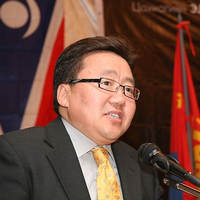In March, a few international media outlets quietly reported that Mongolia and the U.S. had been holding informal discussions on a proposal that would have Mongolia serve as a regional depository of spent nuclear fuel. The arrangement would allow South Korea and Taiwan, which the U.S. supplies with nuclear rods, to dispose of their spent fuel, resolving what has become an increasingly thorny problem for the U.S.
News of the story spread quickly in the Mongolian press, and public opinion came out decidedly against the proposal. The Japanese nuclear crisis in Fukushima has compounded opposition in Mongolia to nuclear energy. Whether popular concerns are realistic or not is irrelevant to most Mongolians.
The Mongolian Foreign Ministry officially denied the reports of the talks over the spent fuel depository, claiming that it was inconsistent with the country's laws "prohibiting the import of dangerous waste to Mongolian territory." However, while the Mongolian government remains publicly adamant that it will reject such a depository, it has demonstrated its diplomatic savvy by approaching the issue as a legal constraint rather than a strategic decision. By framing the discussion around legal principles, the government of President Tsakhiagiin Elbegdorj has avoided disappointing its emerging strategic partners in Washington and Moscow.

